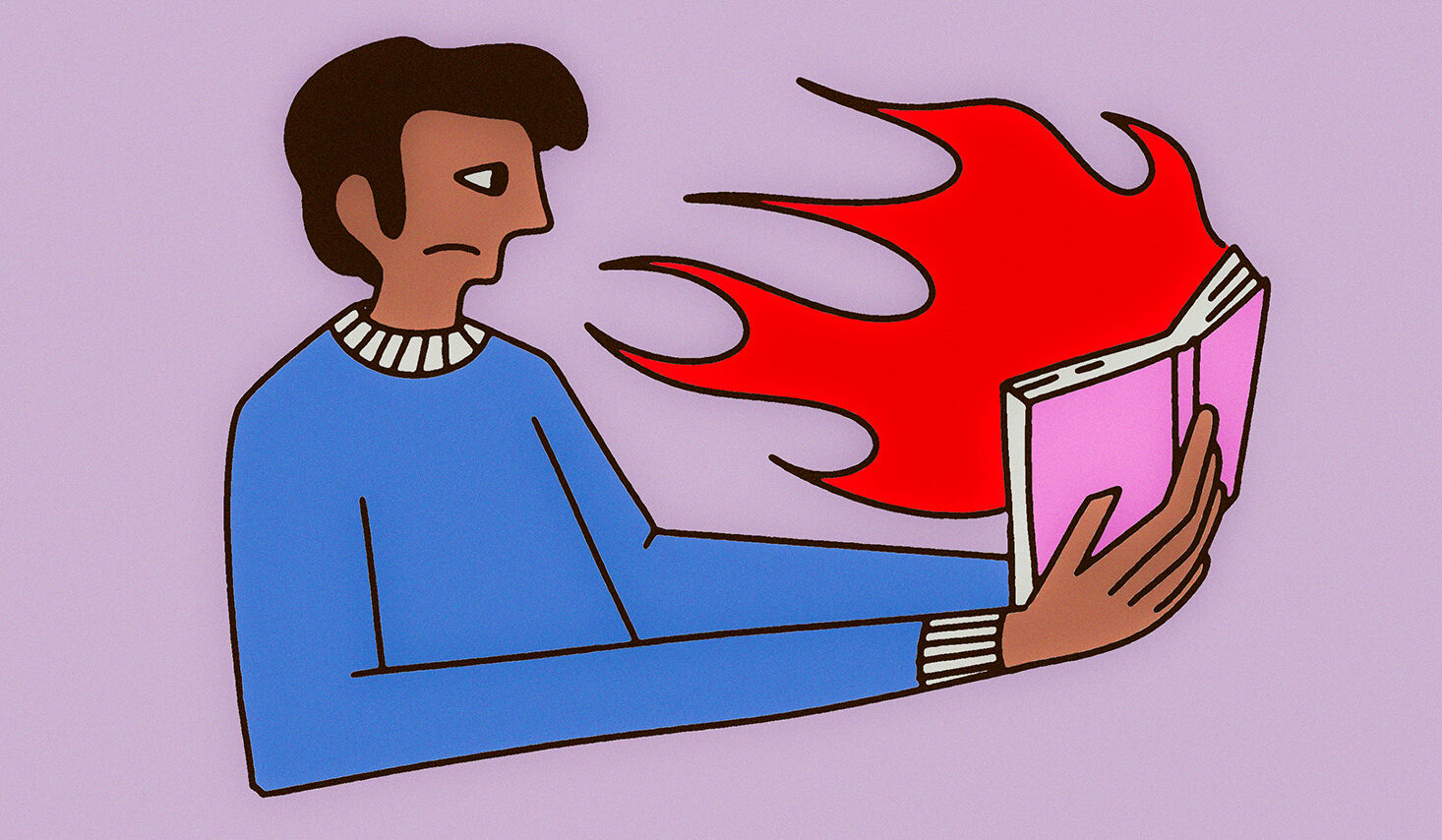
TW: This article contains discussions of mental health and mention of suicide which some readers may find distressing.
When you’re a teenager, you spend your life dreaming about life outside of the confines of polyester shirts and claustrophobic classrooms. When the merry-go-round of standardised exams finally stops, for some, the next logical step is to take a loan from the government to spend three years slouched in a brutalist library with ick-inducing fluorescent lighting. Yes, we’re talking about university.
And while higher education – whether it’s university, art college, drama school or whatever else you wind up applying for – is often hyped up in TV and film as some of the best years of your life, the reality can be far from it. In today’s climate, there’s, quite obviously, an issue of finance. Unless you’re lucky enough to receive monetary support from family, your student loan doesn’t go far, especially when you factor in rising rental and living costs. Then, there’s the innate academic pressure of further study, the difficulties of moving away from home for the first time, and the anxieties of an uncertain job market post-graduation.
A grave picture for queer students’ mental health
Understandably, these various factors can take a toll on students’ mental health. According to research, 16% of undergraduate students report struggling with their mental health – and LGBTQIA+ students are even more severely affected. The same statistics show that gay men and bisexual people are respectively twice and four times as likely to report poor mental health than their straight counterparts.
Recent spikes in mental health struggles at university can likely be attributed to the squeeze of the cost of living crisis and the ongoing impact of the pandemic. However, even before the pandemic, universities were increasingly accused of offering insufficient safeguarding measures.
In 2023, this came to a head after allegations arose accusing universities of “hiding suicide attempts”, which were made public during a debate in Parliament. The debate itself was triggered by a petition launched by bereaved parents of students and was signed by 128,000 people.
Current and former students speak out
Universities across the UK are making efforts to support students with their mental health, whether it’s offering adjustments to deadlines and exams or providing access to services like free counselling. However, when speaking to graduates and current students, it seems like more could be done to tailor these provisions to the LGBTQIA+ experience.
Highly in-demand student counselling services may not be culturally informed – leaving LGBTQIA+ individuals feeling like their experiences aren’t being fully understood or accounted for. “Counselling was sporadic and not targeted to me as an individual,” Caitlin, a queer woman who graduated in 2020, explains. “There was no consideration of our identity when assigning help – it was very much whatever person was free.”
Requesting academic extensions and adjustments on mental health grounds can also feel more strenuous for some LGBTQIA+ people, particularly when disclosing details of their private life. “Being queer and having to bare yourself fully to strangers [made me] anxious – you never know how someone might react,” says Ry, who graduated in 2019.
https://www.gaytimes.co.uk/originals/mental-health-resources-for-lgbtq-people/
For some students, a lack of understanding about their identity on campus can make reaching out for help even more daunting. “Being non-binary didn’t entirely prevent me from reaching out but it was a huge obstacle and fear of mine,” says Josh*, a non-binary person who graduated from drama school in 2022. “I was concerned about word spreading, preconceptions affecting opportunities I would be given in my training, and not wanting to be seen as ‘trouble’,” they explain.
However, things do appear to be gradually improving at an institutional level. Current PhD student Sam has noticed a positive shift during his time in higher education. “I’ve been a student for six years now and there have definitely been some shifts in inclusivity and the accessibility of LGBTQIA+ resources, as well as general mental health awareness,” he says.
So what are universities doing to help support LGBTQIA+ mental health?
One way to improve mental health support, for all students, is obvious: more funding. Luckily, that’s on its way.
In June 2023, The Office for Students (OfS) announced £3.6 million worth of funding for Student Space – a platform offering one-to-one text and web chat support services for students who are struggling.
However, they seem hesitant to reveal details on any queer-specific mental health measures. “The OfS is not prescriptive about what individual universities and colleges should be offering in terms of mental health support,” they tell GAY TIMES. “We do encourage all universities and colleges to explore barriers and challenges faced by groups of students who may be more at risk of poor mental health and consider risks to equality of opportunity, which may affect LGBTQ+ students.”
Despite these generalisations, they reiterated their commitment, since 2021, to fund mental health projects tailored towards students with “characteristics identified as increasing the risk of poor mental health”.
A silver lining is also a proposed aim by the Department for Education to ensure that all universities across the UK join the University Mental Health Charter by September 2024 – a programme they say will help make “cultural change so that all aspects of university life promote and support mental health.”
Could on-campus LGBTQIA+ safer spaces be the answer?
But what’s being done to ensure that LGBTQIA+ students don’t fall through the cracks?
Well, some universities are taking it upon themselves to create safer spaces for LGBTQIA+ students – starting with student accommodation. With institutions such as the University of Sheffield, the University of Bath and Solent University having LGBTQIA+ specific student accommodation, it seems like change really does begin at home.
Externally, groups such as National Student Pride continue to grow and are now considered the UK’s biggest LGBTQIA+ student event. Alongside the parties and talks you might expect as part of a Pride celebration, they also offer an LGBTQIA+ career fair where soon-to-be graduates can imagine a life beyond academia via representatives from queer-friendly employers across the UK.
And for queer students looking for further support with their mental health, charities such as Student Minds offer LGBTQIA+ resources which provide advice about coming out, discrimination and exclusion, as well as details of where to get more support.
If you suspect that you are struggling with your mental health, you should book an appointment with your GP to discuss potential treatment plans and support. Anyone looking for short-term mental health support or to explore available information can contact the Mind infoline on 0300 123 3393.


